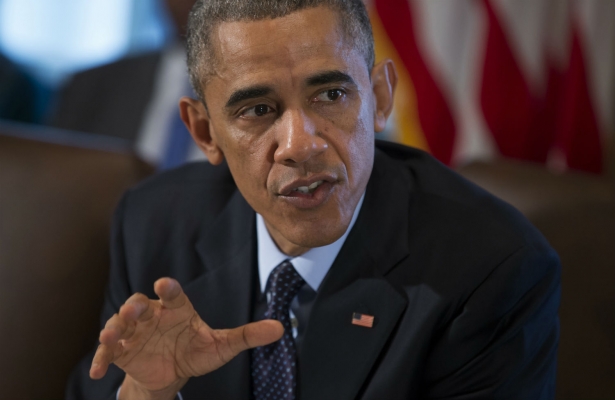Warren Buffett explained the secret to addressing a lot of the economic challenges facing the United States during President Obama’s first term. In a short commentary written for The New York Times—headline: “Stop Coddling the Super-Rich”—Buffett explained, “My friends and I have been coddled long enough by a billionaire-friendly Congress. It’s time for our government to get serious about shared sacrifice.”
President Obama was always cautious when it came to taking Buffett’s advice.
Too cautious.
But as Obama enters what he refers to as “the fourth quarter” of his presidency, he has begun to embrace a proper, if still judicious, populism.
With an eye toward addressing income inequality, the president will use his State of the Union Address to propose new taxes and fees on very rich people and very big banks. In any historical context, the tax hikes and fees are “modest.” But after a period of absurd austerity and slow-growth economics (in which all the sacrifices were made by working families, while all the advantages accrued to very rich families and very big banks), Obama’s move is as important as it is necessary.
At a point when there is broadening recognition of the social and economic perils posed by income inequality, the president is talking about taking simple steps in the right direction. Congress is unlikely go along with him, but the American people will—Gallup polling finds that 67 percent of likely voters are dissatisfied with income and wealth distribution in the United States. And as this country prepares for the critical presidential and congressional elections of 2016, the president’s clarifying of the terms of debate on taxes becomes vital.
According to Obama aides, the president will on Tuesday propose to alter a “trust-fund loophole” provision that, according to The New York Times, “shields hundreds of billions of dollars from taxation each year.” Obama also wants to raise the highest capital-gains tax rate from 23.8 percent to 28 percent for couples with incomes above $500,000 annually.
The president will, in addition, propose a new fee on huge financial firms—those with more than $50 billion in assets—in order to discourage risky borrowing. Under the plan, a fee of seven basis points would be imposed on the liabilities of the biggest banks.
The White House calculus says these initiatives would raise roughly $320 billion over the next ten years. Most of the money would be used to provide tax breaks and benefits for working families: a $500 credit for families with two working spouses, improved structures for retirement saving, a tripling of the tax credit for childcare to $3,000 per child. In addition, the revenues would cover costs associated with the president’s recently-announced plan for free tuition at community colleges.
This is not a radical plan. It redistributes a very small amount of wealth, and most of that wealth will be steered right back into the economy by working families that—even as employment rates slowly improve—continue to struggle to make ends meet in an era of stagnant (or, at the very least, exceptionally slow) wage growth.
To get a sense of how modest the Obama proposal is, consider this: the capital gains tax rate increase he proposes will only return the rateto what it was when Ronald Reagan was president. So Obama is only undoing the damage done; he is not going anywhere near the robust rates seen under Richard Nixon and Gerald Ford. Nor is he even talking tax reforms that would return the marginal tax rate for the wealthiest Americans to 91 percent: the rate seen during the presidency of Republican Dwight Eisenhower, a period during which a booming US economy saw rapid expansion of employment and wages.
Of course, these details will not inspire the Republicans of the current day—who long ago abandoned the fiscal realities understood by Eisenhower, Nixon, Ford and even Reagan for a fantasy-based economics—to go along with Obama. Before even seeing the plan, the Wall Street–aligned leaders of the new Republican-controlled Congress were crying foul, with House Ways and Means Committee chairman Paul Ryan’s office declaring, “This is not a serious plan.”
Perhaps not for this Congress.
But it is a serious plan for these times—or, at the very least, the beginning of a serious plan.
The State of the Union Address, when delivered by a lame-duck president to a Congress controlled by the opposition party, rarely sets the legislative agenda.
But a president, using his bully pulpit well and wisely, can frame the political debate. And that political debate in 2015 and 2016 should begin with the premise that it is time to stop coddling the super-rich.
Read Next: John Nichols on Obama and the digital divide.
















